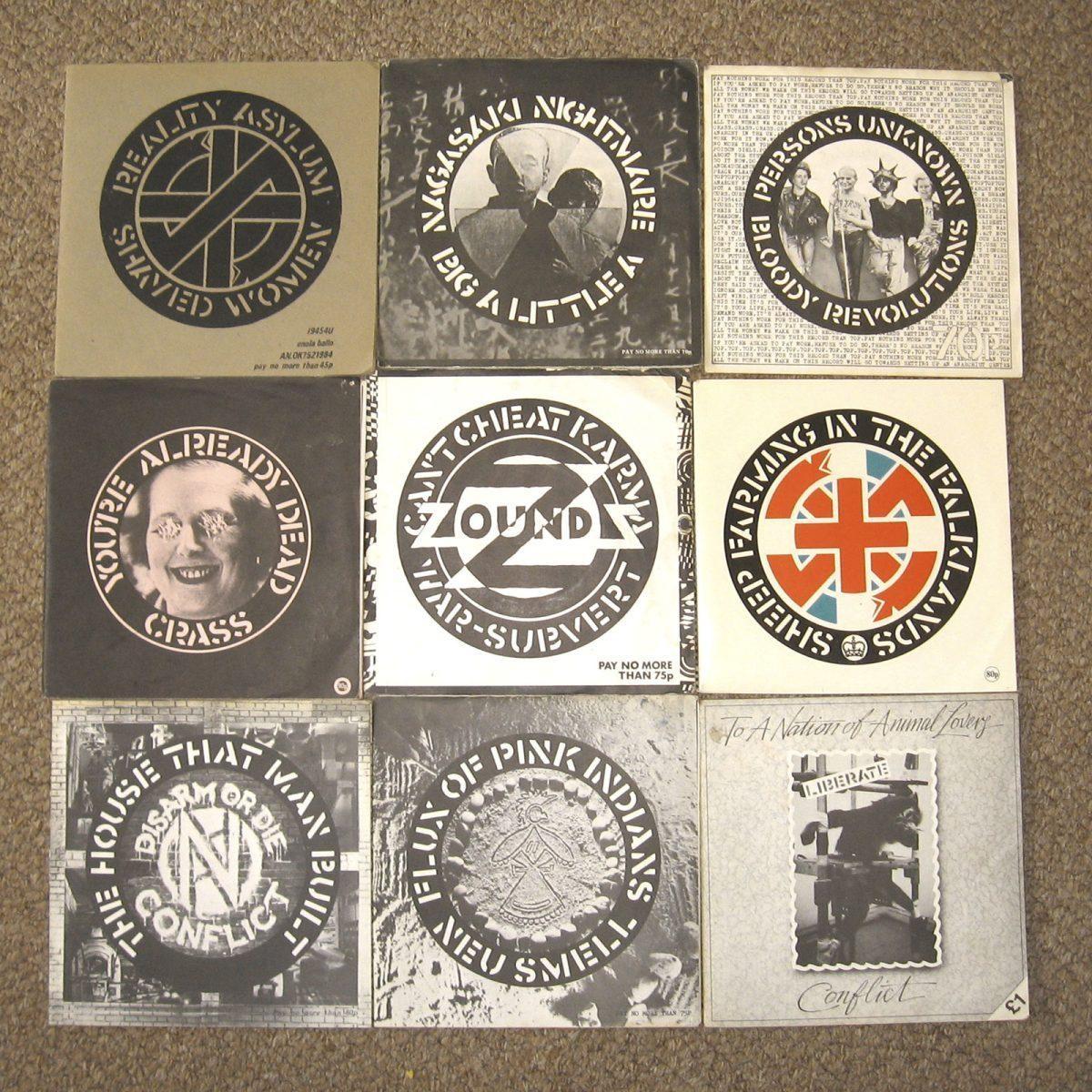Anarcho-punk, punk and anarchism
anarcho punk scene
There are two parts to the anarcho-punk scene; one in the United Kingdom and the other mostly centered on the west coast of the United States. While the two factions can be seen as part of a single whole in many ways, especially in the sound they produce or in the content of their texts and illustrations, there are important differences between them.
The anarcho-punk scene emerged around the end of 1977. She drew on the momentum that surrounded the mainstream punk scene, while at the same time responding to the direction the mainstream was taking in its dealings with the establishment. Anarcho-punks viewed safety pins and Mohicans as little more than an ineffective fashion pose, stimulated by the mainstream media and industry. The subservience of mainstream artists is mocked in the Dead Kennedys song "Pull My Strings": "Give me the horn / I'll sell you my soul. / Pull my strings and I'll go far." Artistic honesty, social and political comment and action, and personal responsibility became central points of the scene, marking anarcho-punks (as they claimed) as the opposite of what used to be called punk. While the Sex Pistols proudly displayed bad manners and opportunism in their dealings with the Establishment, anarcho-punks generally stayed away from the Establishment, instead working against it, as will be shown below. The outward character of the anarcho-punk scene, however, drew on the roots of mainstream punk to which it responded. The extreme rock and roll of early punk bands such as Damned and the Buzzcocks rose to new heights.
Anarcho-punks played faster and more chaotic than ever before. The cost of production has been reduced to the lowest possible level, a reflection of the budgets available under the DIY system, as well as a reaction to the values of commercial music. The sound was cheesy, dissonant and very angry.

Lyrically, anarcho-punks were informed by political and social commentary, often presenting a somewhat naive understanding of issues such as poverty, war, or prejudice. The content of the songs were allegories drawn from underground media and conspiracy theories, or satirized political and social mores. At times, the songs showed a certain philosophical and sociological insight, still rare in the world of rock, but having predecessors in folk and protest songs. Live performances broke many of the norms of regular rock.
Concert bills were split among many bands as well as other performers such as the poets, with the hierarchy between headliners and backing bands being either limited or eliminated entirely. Films were often shown, and some form of political or educational material was usually distributed to the public. "Promoters" were generally anyone who organized the space and contacted the bands to ask them to perform. Therefore, many concerts were held in garages, parties, community centers and free festivals. When the concerts were held in "ordinary" halls, a huge amount of ridicule was poured out at the principles and actions of the "professional" musical world. This often took the form of vitriol or even brawls with bouncers or management. Performances were loud and chaotic, often marred by technical issues, political and "tribal" violence, and police closures. Overall, unity was primal, with as few show business trappings as possible.
The ideology of anarcho-punk
While anarcho-punk bands are often ideologically diverse, most bands can be categorized as adherents of anarchism without adjectives as they embrace a syncretic fusion of many potentially differing ideological strands of anarchism. Some anarcho-punks identified themselves with anarcho-feminists, others were anarcho-syndicalists. Anarcho-punks universally believe in direct action, although how this manifests itself varies greatly. Despite differences in strategy, anarcho-punks often collaborate with each other. Many anarcho-punks are pacifists and therefore believe in using non-violent means to achieve their goals.
Leave a Reply